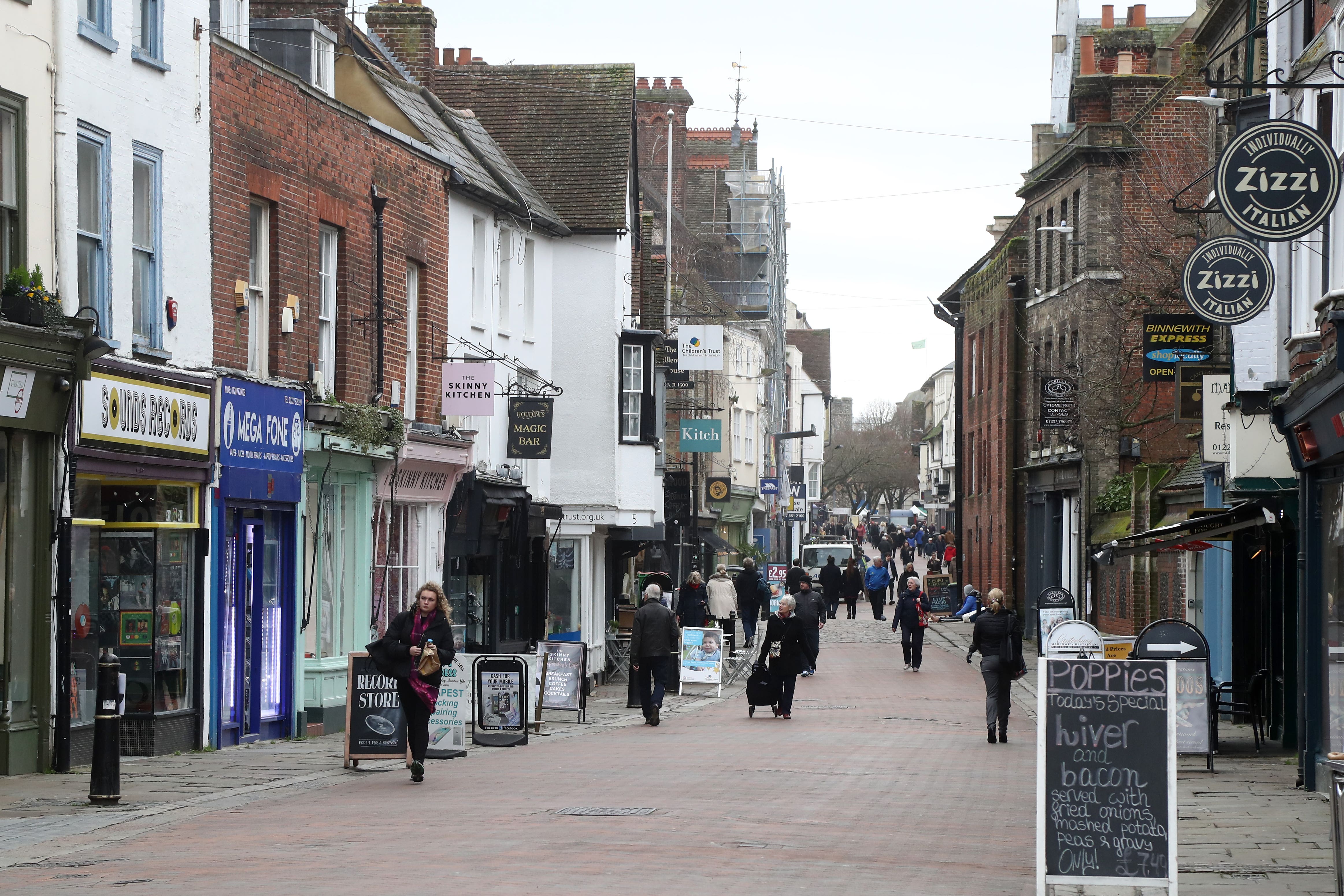Firms face £2.7bn business rates rise from April due to inflation
The news comes after the Office for National Statistics recorded inflation at 10.1% last month.

Your support helps us to tell the story
From reproductive rights to climate change to Big Tech, The Independent is on the ground when the story is developing. Whether it's investigating the financials of Elon Musk's pro-Trump PAC or producing our latest documentary, 'The A Word', which shines a light on the American women fighting for reproductive rights, we know how important it is to parse out the facts from the messaging.
At such a critical moment in US history, we need reporters on the ground. Your donation allows us to keep sending journalists to speak to both sides of the story.
The Independent is trusted by Americans across the entire political spectrum. And unlike many other quality news outlets, we choose not to lock Americans out of our reporting and analysis with paywalls. We believe quality journalism should be available to everyone, paid for by those who can afford it.
Your support makes all the difference.High street firms across England are facing a £2.7 billion tax surge next year after inflation jumped further.
Business rates, the property tax on all businesses including shops, pubs and hotels, are due to increase in April based on inflation recorded last month.
On Wednesday morning, the Office for National Statistics (ONS) revealed that Consumer Price Index (CPI) inflation returned to an equal 40-year-high of 10.1% in September.
The high inflation rate signals that the overall business rates bill for firms across England will rise by £2.72 billion from April without Government intervention, according to experts at Altus Group.
The British Retail Consortium (BRC) said retailers alone are set for an £800 million tax hit next year as a result.
The news also comes as current business rates relief for many hospitality, retail and leisure firms is expected to end next year.
The end of the relief, which provides a 50% rates reduction for hospitality, retail and leisure firms to a cap of £110,000 per business, is expected to add another £2.67 billion to the national business rates bill in April.
Kate Nicholls, chief executive of industry group UKHospitality, said the potential rates hike “could prove fatal” for many companies.
She said: “With the September inflation figures traditionally being used to set tax changes and rates for the following year, there is a real risk that hospitality businesses will face an enormous cliff edge in April if these numbers are used to hike the business rates tax level.
“Such an increase at the same time as the risk of business rates reliefs ending could prove fatal for many.
“With hospitality inflation contributing heavily to the overall inflation rate, we now risk an inflationary spiral where our higher costs lead to higher taxes which lead to even higher prices.”
Tom Ironside, director of business and regulation at the BRC, said: “Retailers are grappling with mounting input costs, a tight labour market and a weaker pound.
“And while they work hard to absorb these cost pressures and support their customers, they can only shoulder so much.
“Retail accounts for 5% of the economy, yet pays a massive 25% of the UK business rates bill.
“The disproportionate impact of business rates is holding back investment at a crucial time for the economy.”
Analysis by Altus also indicated that current Bank of England inflation projections would signal a cumulative rates increase of £24.63 billion for all firms over the next five years.
Robert Hayton, UK president at Altus, said: “With more than one in 10 UK businesses now reporting a moderate-to-severe risk of insolvency, the time has come to end this ridiculous policy of annually increasing upwards rates revenue by inflation through a renewed focus on growth to drive local taxation revenues instead.”
Jerry Schurder, business rates policy lead at property experts Gerald Eve, said: “Businesses are quaking in their boots at the risk of the new Chancellor forcing up business rates in line with inflation.
“The Prime Minister claims that her policies are designed for growth, growth and growth but further business failures and shop closures will result unless the uniform business rates is frozen again.”